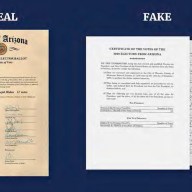WASHINGTON – President Barack Obama said Tuesday he is encouraged by progress in U.S. efforts to bring Israel and the Palestinians back to the negotiating table, thanking his Egyptian counterpart for help in working for a breakthrough.
The president was responding to a question about reports that Israel had stopped granting permission for new settlements in the West Bank, even though projects in progress were continuing.
Obama has made a resumption of peace talks between Israel and the Palestinians one of his key foreign policy goals, hoping a breakthrough there would lead to wider agreements among the Jewish state and the Arab world.
To that end, Obama has demanded that the Israeli government of Prime Minister Benjamin Netanyahu freeze construction of Jewish settlements in east Jerusalem and the West Bank, land that the Palestinians want for a state. Netanyahu’s public refusal has opened a rare rift between the two traditionally close allies.
“The Israeli government has taken discussions with us very seriously,” Obama said, adding that he was “encouraged by what I am seeing on the ground.”
“All parties,” he said, “have to take steps to restart serious negotiations,” including Palestinians efforts to end the incitement of violence against Israel.
“We are moving in the right direction,” said visiting Egyptian President Hosni Mubarak, “and the Arab states are ready to help if the Israelis and the Palestinians returned to peace talks.”
Mubarak also strongly praised Obama’s Cairo speech to the Arab world earlier this summer.
“The importance of the Cairo visit was very appreciated by the Muslim and Islamic world because the Islamic world had thought that the U.S. was against Islam, but his great, fantastic address there has removed all those doubts,” Mubarak said.
Mubarak said the settlement issue was central to a resumption of Israeli-Palestinian talks and a wider warming of ties among the Jewish state and the larger Arab world.
Talking a traditionally tough stand, Mubarak also said he had told the Israelis that they must “forget temporary solutions or temporary borders.”
The Arabs, backing a long-standing peace offer from Saudi Arabia, have said they were willing to recognize Israel and make peace if the Jewish state returns to its pre-1967-War borders during which it annexed all of Jerusalem and captured the West Bank.
The Egyptian Embassy said Mubarak’s remarks indicating he would seek another term in office were mistranslated and that the 81-year-old leader, who has ruled Egypt for 28 years, had not made up his mind about another run for office.
During his appearance with Obama, Mubarak volunteered that the two leaders had talked about U.S. concerns about the Egyptian political system.
“I have entered into the elections based on a platform that included reforms and therefore we have started to implement some of it and we still have two years to implement it,” according to the translation of Mubarak’s comments.
Mubarak looked robust despite earlier reports that he had become increasingly frail and was preparing his 46-year-old son, Gamaol, as a successor. Egypt has an exploding population, ravaged by widespread poverty and high unemployment. He has kept a lid on Egypt’s burgeoning social and religious pressures through heavy repression of much of the political opposition in Egypt, especially the Islamic fundamentalist Muslim Brotherhood, the most organized group challenging his rule.
Mubarak had been a regular visitor to Washington during the Clinton administration. Then he stayed away to protest the U.S. invasion of Iraq and President George W. Bush’s intensified pressure to open the Egyptian political system and moderate its human rights policies.
While Egypt and Israel made peace more than 30 years ago, their accord has never reached stated goals of a warm relationship that would overcome historic distrust between the Jewish state and the most populous Arab country.
And the hardline Netanyahu has shown little willingness to give ground, regardless of Mubarak’s moves against weapons and money smuggling through tunnels under Egypt’s border with Gaza, the Mediterranean strip of territory controlled by Hamas. Despite the crackdown, Mubarak has failed to persuade the radical Palestinian faction to moderate and reconcile with the mainstream Palestinian leadership in the West Bank.
On another pressing U.S. policy issue, Mubarak said he and Obama talked at length about concerns that Iran is trying to build a nuclear weapon. Mubarak, like Obama, the Israeli leadership and many Arab countries, sees a nuclear-armed Iran as a “game-changing” possibility that could thoroughly upend the balance of power in the Middle East.
While noting they talked about the issue, neither leader indicated how they intended to move forward.
















